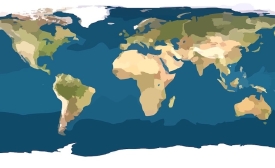geopolitics

American universities abroad can advance U.S. geopolitical interests, but must also appear disinterested to remain credible in their local contexts–a difficult needle to thread.

Today's geopolitical dynamics rely on the communication environment, ushering in a new reality for public diplomacy.

Individuals' knowledge about the world has national security implications that public diplomacy can address, writes U.S. ACPD Executive Director Vivian S. Walker.

The aim of this edited volume is to bring together perspectives and areas in public diplomacy that are under-explored.

Veteran foreign correspondent on his latest book, Spin Wars & Spy Games, exploring the geopolitics of global news networks.
According to reports from the Brazilian Army’s Social Communication Center (CCOMSEx), CBEMs are military diplomacy tools for the alliance between partner nations. “International understandings and commitments support the geopolitical needs of both countries’ interests,” CCOMSEx explained to Diálogo. [...] “Brazilian and U.S. service personnel can expand partnerships for exchanging defense products from both armies and for planning and executing maneuvers in the areas of logistics, intelligence, communications, cybernetics, and command and control,” said CCOMSEx.

A study by USC Annenberg alumnus César Jiménez-Martínez about Chilean nation branding through the eyes of local practitioners.







